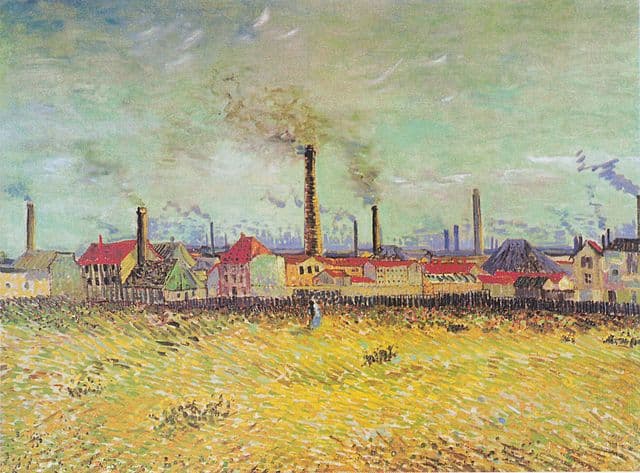Industry 4.0, also known as the Fourth Industrial Revolution, is transforming the global business landscape. This article explores the concept of Industry 4.0, its key technologies, the transformational role it plays in manufacturing and supply chain management, its impact on the workforce, the future trends and challenges it presents, and its global influence.
Understanding the Concept of Industry 4.0
The Fourth Industrial Revolution, also referred to as Industry 4.0, is characterized by the fusion of technologies, blurring the lines between the physical, digital, and biological worlds. It represents a new era of automation, interconnectivity, data exchange, and artificial intelligence, revolutionizing the way businesses operate.
Industry 4.0 is not just a buzzword; it is a transformative force that is reshaping industries across the globe. It is a convergence of cutting-edge technologies that are driving unprecedented levels of efficiency, productivity, and innovation. This revolution is not limited to a single sector but has the potential to impact all industries, from manufacturing and logistics to healthcare and finance.
The Fourth Industrial Revolution: A Brief Overview
The Fourth Industrial Revolution builds upon the previous waves of industrial innovation. It leverages advancements in digital technologies, such as the Internet of Things (IoT), big data analytics, cloud computing, robotics, and artificial intelligence, to create a highly interconnected and intelligent ecosystem.
At the heart of Industry 4.0 is the concept of cyber-physical systems (CPS), where physical objects and systems are seamlessly integrated with digital technologies. This integration enables real-time monitoring, analysis, and control of physical processes, leading to improved efficiency, reduced costs, and enhanced decision-making.
One of the key drivers of Industry 4.0 is the Internet of Things (IoT). The IoT connects various devices, machines, and systems, enabling real-time data sharing and analysis. This connectivity allows businesses to gather valuable insights, optimize operations, and deliver personalized experiences to customers.
Key Technologies Driving Industry 4.0
Several key technologies drive Industry 4.0:
- IoT: Connects various devices, machines, and systems, enabling real-time data sharing and analysis.
The Internet of Things (IoT) is a network of interconnected devices that collect and exchange data. These devices, equipped with sensors and actuators, can communicate with each other and with centralized systems. By harnessing the power of IoT, businesses can monitor and control their operations remotely, optimize resource allocation, and improve overall efficiency.
- Big Data Analytics: Processes and derives insights from vast amounts of data generated by interconnected devices.
In the era of Industry 4.0, data is the new gold. With the proliferation of interconnected devices, businesses have access to an unprecedented amount of data. Big data analytics allows organizations to process and derive valuable insights from this vast amount of information. By analyzing patterns, trends, and correlations, businesses can make data-driven decisions, identify opportunities, and mitigate risks.
- Cloud Computing: Provides scalable and flexible computing resources to support data storage and processing.
Cloud computing plays a crucial role in Industry 4.0 by providing scalable and flexible computing resources. It allows businesses to store and process large volumes of data without the need for on-premises infrastructure. Cloud computing also enables seamless collaboration and data sharing, facilitating real-time decision-making and enhancing operational efficiency.
- Robotics: Enables the automation of repetitive tasks and enhances productivity.
Robots have been a part of industrial processes for decades, but Industry 4.0 takes robotics to a whole new level. Advanced robotics technologies, such as collaborative robots (cobots) and autonomous mobile robots (AMRs), are revolutionizing manufacturing and logistics. These robots can perform repetitive tasks with precision and speed, freeing up human workers to focus on more complex and creative activities.
- Artificial Intelligence: Enhances decision-making capabilities through machine learning and predictive analytics.
Artificial intelligence (AI) is a cornerstone of Industry 4.0. AI algorithms can analyze vast amounts of data, identify patterns, and make predictions with a high degree of accuracy. Machine learning, a subset of AI, enables systems to learn from data and improve their performance over time. By harnessing the power of AI, businesses can automate decision-making processes, optimize operations, and deliver personalized experiences to customers.
These key technologies are not independent of each other but are interconnected and mutually reinforcing. The convergence of IoT, big data analytics, cloud computing, robotics, and artificial intelligence creates a powerful ecosystem that drives the transformational potential of Industry 4.0.
The Transformational Role of Industry 4.0
Industry 4.0 is a revolutionary concept that is transforming manufacturing processes and supply chain management, leading to increased efficiency and flexibility. This fourth industrial revolution is characterized by the integration of advanced technologies, such as the Internet of Things (IoT), artificial intelligence (AI), and big data analytics, into traditional manufacturing and supply chain systems.
Impact on Manufacturing Processes
One of the key aspects of Industry 4.0 is the introduction of smart factories, where machines communicate and coordinate with each other autonomously. This level of automation and connectivity results in improved productivity, reduced downtime, and enhanced quality control. With machines being able to exchange real-time data, manufacturers can optimize production processes, identify bottlenecks, and make data-driven decisions to improve overall efficiency.
Furthermore, Industry 4.0 enables the implementation of predictive maintenance strategies. By leveraging data from sensors embedded in machines, manufacturers can detect potential issues before they lead to breakdowns or failures. This proactive approach to maintenance reduces unplanned downtime and extends the lifespan of equipment, ultimately saving costs for businesses.
Changes in Supply Chain Management
Industry 4.0 revolutionizes supply chain management by enabling real-time visibility and transparency across the entire supply chain. Smart sensors and tracking systems provide insights into inventory levels, demand patterns, and delivery status. This level of visibility allows businesses to optimize inventory management, streamline logistics, and enhance customer satisfaction.
With the help of IoT devices and advanced analytics, companies can monitor inventory levels in real-time and automatically trigger replenishment orders when stock levels reach a certain threshold. This ensures that businesses can meet customer demand without excessive inventory holding costs or stockouts. Additionally, real-time demand data can be used to forecast future demand patterns, allowing businesses to make more accurate production and procurement decisions.
Furthermore, Industry 4.0 enables the implementation of agile and flexible supply chain strategies. With the ability to track and trace products throughout the supply chain, businesses can quickly respond to changes in customer demand or market conditions. This level of agility allows for faster order fulfillment, reduced lead times, and improved customer satisfaction.
In conclusion, Industry 4.0 is transforming the manufacturing industry and supply chain management by introducing advanced technologies and data-driven decision-making. The integration of IoT, AI, and big data analytics into traditional systems enables improved productivity, reduced downtime, optimized inventory management, and enhanced customer satisfaction. As businesses continue to embrace Industry 4.0, we can expect further advancements and innovations that will reshape the future of manufacturing and supply chain operations.
Industry 4.0 and the Workforce
Industry 4.0 is reshaping the workforce, requiring new skills and emphasizing the importance of lifelong learning.
The Shift in Job Roles and Skills
Industry 4.0 eliminates certain traditional job roles while creating new ones. Routine tasks are automated, allowing employees to focus on higher-value activities that require creativity, problem-solving, and critical thinking skills. Workers need to adapt and acquire digital literacy, data analytics, and collaboration skills to thrive in this new era.
Preparing the Workforce for Industry 4.0
Organizations and educational institutions must invest in training and upskilling programs to prepare the workforce for Industry 4.0. By promoting a culture of lifelong learning and providing access to relevant training opportunities, businesses can ensure their employees are equipped with the necessary skills to embrace the advancements brought by Industry 4.0.
The Future of Industry 4.0
The evolution of Industry 4.0 holds exciting possibilities and challenges for businesses.
Predicted Trends and Developments
In the future, Industry 4.0 is expected to lead to increased connectivity between devices, enhanced artificial intelligence capabilities, and the adoption of more advanced robotics. It may also enable personalized manufacturing, where products are customized based on individual requirements.
Potential Challenges and Solutions
Despite the benefits, Industry 4.0 poses challenges such as cybersecurity risks, data privacy concerns, and the need for regulatory frameworks to govern emerging technologies. Businesses and policymakers must address these challenges through robust cybersecurity measures, ethical use of data, and proactive regulatory frameworks.
The Global Influence of Industry 4.0
Industry 4.0 has a profound impact on both developed and developing countries, shaping the global economy.
Industry 4.0's Impact on Developing Countries
Industry 4.0 presents opportunities for developing countries to leapfrog traditional stages of industrial development. By embracing digital technologies and adopting agile manufacturing practices, these countries can improve productivity, attract investments, and increase competitiveness in the global market.
The Role of Industry 4.0 in Global Economy
Industry 4.0 has the potential to stimulate economic growth by driving innovation, enhancing productivity, and fostering sustainable development. It enables businesses to leverage advanced technologies to respond to changing market dynamics, adapt to customer demands, and gain a competitive edge in the global marketplace.
In conclusion, Industry 4.0 is revolutionizing various aspects of the business and manufacturing landscape. Understanding the concept, embracing the transformative role it plays, preparing the workforce for the future, and navigating the global implications are crucial steps for businesses to thrive in the era of Industry 4.0.



